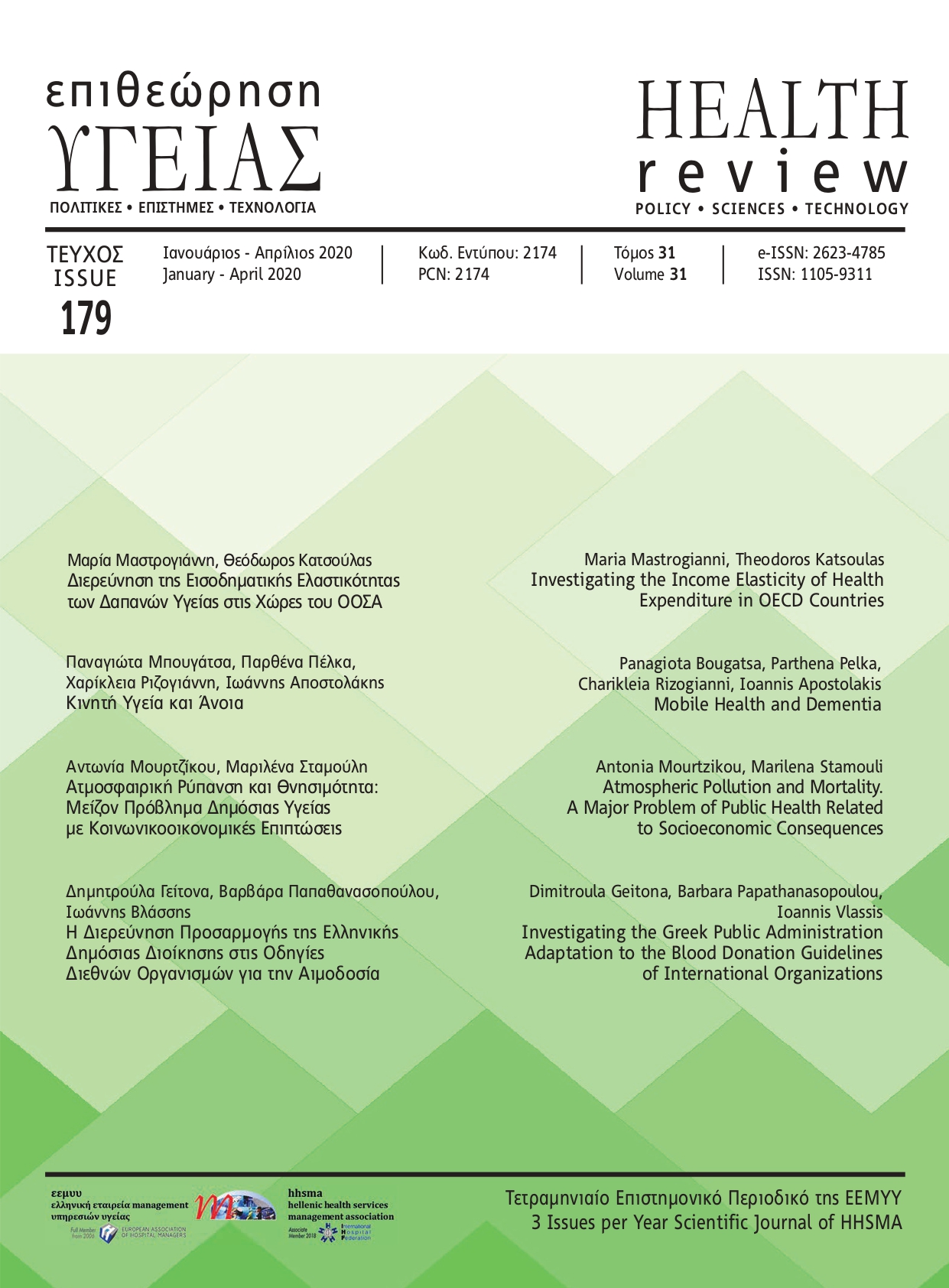Abstract
In this paper, the institutional framework of the Greek Public Administration for blood donation, the guidelines recommended by the European Union (EU) and the guidelines proposed by the World Health Organization (WHO) were studied. The voluntary donation and quality and safety standards for both the donor and the recipient were the main aspects investigated.
The review methodology was used for investigating the institutional framework of Blood Donation and the primary sources analysis was conducted with the use of the content analysis method. The data collected were initially grouped and analyzed and then, a comparative analysis of the similar groups of the Greek institutional framework, the WHO, and the EU was conducted.
The main aim of this study was to investigate if the Greek institutional framework for Blood Donation fully or partially complies with WHO and EU guidelines.
The comparative analysis of the data revealed that the institutional framework in Greece is adapted to the latest policies of WHO, and has integrated EU policies. Areas that do not comply with the WHO guidelines relate to 100% voluntary blood donation and implementation of a web-based information system. The long-term effort of the Greek National Health Service (NHS) to adapt to international standards in order to improve the quality of life of transfused patients emerged from this research. Notwithstanding, the actions of the state should aim at increasing the voluntary blood donation and establishing a single information system for the efficient management of a precious good, as is blood.
